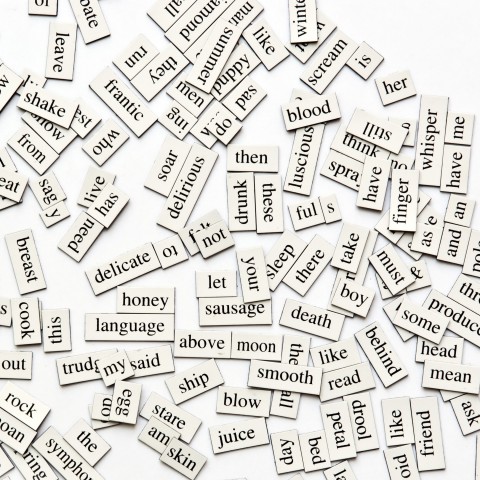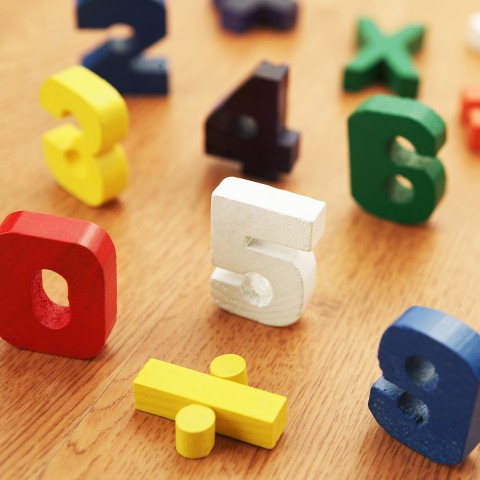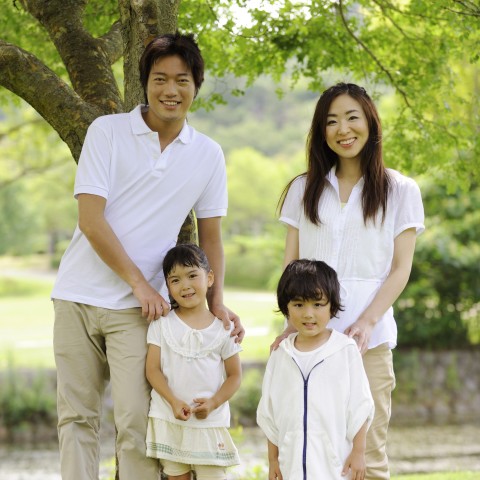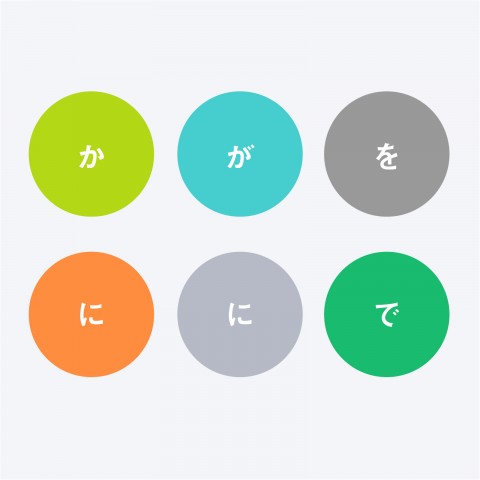
You’ve just started studying Japanese? Then you should build a solid foundation by learning the easiest and most frequently used Japanese words for beginners!
Japanese dictionaries list anywhere from 55,000 to 82,000 words, though the number of words used per day by ordinary Japanese adults is said to be around 800-900 (or 1000-1200 words for university students).
Some linguists state that Japanese is one of the most difficult languages for native English speakers to learn. The Foreign Service Institute (FSI) has labeled Japanese a Category IV language, which is the most difficult level.
However, there are a few things about Japanese that English speakers find easy. While it can take forever to master the Kanji system for reading and writing, learning how to listen and speak in daily conversations isn’t as difficult as you may think! You don’t have to worry about whether to use singular or plural forms, which article to add before a noun, or how to conjugate verbs (I am / she is / they are). These concepts do not exist in the Japanese language!
In this article, JapanesePod101.com will introduce the most useful Japanese beginner words that are used in everyday situations.

日本語の初級単語を学ぼう。
Nihon-go no shokyū tango o manabō.
“Let’s learn Japanese beginner words.”
 Table of Contents
Table of Contents
- Pronouns – 代名詞 (Daimeishi)
- Numbers – 数字 (Sūji)
- Nouns – 名詞 (Meishi)
- Verbs – 動詞 (Dōshi)
- Adjectives – 形容詞 (Keiyōshi)
- Conjunctions – 接続詞 (Setsuzokushi)
- Other – その他 (Sonota)
- Conclusion
1. Pronouns – 代名詞 (Daimeishi)
Pronouns are a major component of Japanese vocabulary, so learning them early on in your studies is a great idea. To give you a headstart, here’s a list of the most important pronouns in Japanese.
Personal Pronouns – 人称代名詞 (Ninshō daimeishi)
| English | Kanji | Hiragana | Reading |
| I (female/casual; unisex/formal) | 私 | わたし | watashi |
| I (male/casual) | 僕 | ぼく | boku |
| you (general) | ー | あなた | anata |
| you (casual) | 君 | きみ | kimi |
| he | 彼 | かれ | kare |
| she | 彼女 | かのじょ | kanojo |
| they | 彼ら | かれら | kare-ra |
Examples:
- 彼と彼女は同じ大学の学生です。
Kare to kanojo wa onaji daigaku no gakusei desu.
“He and she are students of the same university.”
- これは私からあなたへのプレゼントです。
Kore wa watashi kara anata e no purezento desu.
“This is a present for you from me.”
- 君と僕は同い年だ。
Kimi to boku wa onaidoshi da.
“You and I are the same age.”
Demonstrative Pronouns – 指示代名詞 (Shiji daimeishi)
| English | Kanji | Hiragana | Reading |
| this (close to the speaker) | ー | これ | kore |
| it / that (close to the listener) | ー | それ | sore |
| that (far from both the speaker and the listener) | ー | あれ | are |
| these (close to the speaker) | ー | これら | kore-ra |
| they / those (close to the listener) | ー | それら | sore-ra |
| those (far from both the speaker and the listener) | ー | あれら | are-ra |
Examples:
- それを取ってください。そう、それです。
Sore o totte kudasai. Sō, sore desu.
“Please pass me that [close to the listener]. Yes, that’s it.”
- これは私のです。あれはあなたのです。
Kore wa watashi no desu. Are wa anata no desu.
“This is mine. That is yours.”
- これらの作品をどう思いますか。
Kore-ra no sakuhin o dō omoimasu ka.
“What do you think about these works?””What do you think about these works?”
For more details about Japanese pronouns, please see Your Ultimate Guide to Japanese Pronouns.

これは私の本です。
Kore wa watashi no hon desu.
“This is my book.”
Interrogative Pronouns – 疑問詞 (Gimonshi)
| English | Kanji | Hiragana | Reading |
| what | 何 | なに | nani |
| who | 誰 | だれ | dare |
| where | ー | どこ | doko |
| which | ー | どの | dono |
| why | ー | なぜ/どうして | naze / dōshite |
| when | ー | いつ | itsu |
| how much | ー | いくら | ikura |
| how many | ー | いくつ | ikutsu |
| how | ー | どうやって | dō yatte |
Examples:
- これは何ですか。これとあれは何が違いますか。
Kore wa nan desu ka. Kore to are wa nani ga chigaimasu ka.
“What is this? What is the difference between this and that?”
- 誰とどこに行くの?いつ帰る?
Dare to doko ni iku no? Itsu kaeru?
“With whom and where are you going? When will you come back?”
- あれはいくらですか。いくつ買えば割引になりますか。
Are wa ikura desu ka. Ikutsu kaeba waribiki ni narimasu ka.
“How much is that? How many should I buy to get a discount?”
For more information about asking and answering questions in Japanese, check out The 10 Most Useful Japanese Questions and Answers.

一番近い地下鉄の駅はどこですか。
Ichi-ban chikai chikatetsu no eki wa doko desu ka.
“Where is the nearest subway station?”
2. Numbers – 数字 (Sūji)
Japanese numbers are very simple.
The names of all numbers in Japanese consist of the ten basic numbers shown below, except for certain units such as: hundred (百 hyaku), thousand (千 sen), ten-thousand (万 man), etc. There are no particular names like “eleven,” “twelve,” “thirty,” or “fifty.”
For example:
- Eleven in Japanese is read as jū-ichi, which is literally “ten-one.”
- Fifteen in Japanese is read as jū-go, which is literally “ten-five.”
- Thirty-five in Japanese is read as san-jū go, which is literally “three-ten-five.”
| English | Kanji | Hiragana | Reading |
| one | 一 | いち | ichi |
| two | 二 | に | ni |
| three | 三 | さん | san |
| four | 四 | し/ よん | shi / yon |
| five | 五 | ご | go |
| six | 六 | ろく | roku |
| seven | 七 | しち / なな | shichi / nana |
| eight | 八 | はち | hachi |
| nine | 九 | く / きゅう | ku / kyū |
| ten | 十 | じゅう | jū |
Examples:
- 彼は今年27才になります。
Kare wa kotoshi ni-jū nana-sai ni narimasu.
“He will be 27 years old this year.”
- このペンは95円で、そのえんぴつは70円です。
Kono pen wa kyū-jū go-en de, sono enpitsu wa nana-jū-en desu.
“This pen is ninety-five yen and the pencil is seventy yen.”
- 私は英語を5年、イタリア語を1年勉強しています。
Watashi wa Eigo o go-nen, Itaria-go o ichi-nen benkyō shite imasu.
“I have been studying English for five years and Italian for one year.”
To learn more about counting in Japanese, please check out Japanese Numbers: Let’s Master the Basic Japanese Numbers!

There are several variations of Japanese counters, each one used according to what’s being counted.
Birds = 1羽 (ichi-wa)、2羽(ni-wa), Books = 1冊(issatsu)、2冊(ni-satsu), Shoes = 1足(issoku)、2足(ni-soku)
3. Nouns – 名詞 (Meishi)
Our next set of basic Japanese words consists of frequently used nouns. When used together with verbs, nouns allow you to form complete sentences and effectively express yourself—in a pinch, you can even use them alone in order to convey a basic idea!
Time
| English | Kanji | Hiragana | Reading |
| time | 時間 | じかん | jikan |
| minute | 分 | ふん / ぷん | fun / pun |
| o’clock | 時 | じ | ji |
| day | 日 | にち / ひ / び | nichi / hi / bi |
| month | 月 | つき / げつ / がつ | tsuki / getsu / gatsu |
| year | 年 | ねん | nen |
| morning time (until noon) | 午前 | ごぜん | gozen |
| afternoon | 午後 | ごご | gogo |
| morning | 朝 | あさ | asa |
| noon / noontime / daytime | 昼 | ひる | hiru |
| early evening | 夕方 | ゆうがた | yūgata |
| evening / night | 夜 | よる | yoru |
| Monday | 月曜日 | げつようび | getsu-yōbi |
| Tuesday | 火曜日 | かようび | ka-yōbi |
| Wednesday | 水曜日 | すいようび | sui-yōbi |
| Thursday | 木曜日 | もくようび | moku-yōbi |
| Friday | 金曜日 | きんようび | kin-yōbi |
| Saturday | 土曜日 | どようび | do-yōbi |
| Sunday | 日曜日 | にちようび | nichi-yōbi |
Examples:
- 私は月曜日から金曜日は朝6時に起きます。
Watashi wa getsu-yōbi kara kin-yōbi wa asa roku-ji ni okimasu.
“I get up at six o’clock from Monday to Friday.”
- 彼は1年に3ヶ月仕事で海外へ行きます。
Kare wa ichi-nen ni san-kagetsu shigoto de kaigai e ikimasu.
“He goes abroad for three months a year for work.”
- 彼女は夜遅くに寝ますが、朝は早く起きます。
Kanojo wa yoru osoku ni nemasu ga, asa wa hayaku okimasu.
“She goes to bed late at night, but gets up early in the morning.”
People
| English | Kanji | Hiragana | Reading |
| parent | 親 | おや | oya |
| parents | 両親 | りょうしん | ryōshin |
| father / dad | 父 / お父さん | ちち / おとうさん | chichi / o-tō-san |
| mother / mom | 母 / お母さん | はは / おかあさん | haha / o-kā-san |
| older brother | 兄 | あに | ani |
| older sister | 姉 | あね | ane |
| younger brother | 弟 | おとうと | otōto |
| younger sister | 妹 | いもうと | imōto |
| grandfather / grandpa | 祖父 / お爺ちゃん | そふ / おじいちゃん | sofu / o-jii-chan |
| grandmother / grandma | 祖母 / お婆ちゃん | そぼ / おばあちゃん | sobo /o-bā-chan |
| uncle | 伯父(叔父) | おじ | oji |
| aunt | 伯母(叔母) | おば | oba |
| cousin | 従兄弟 | いとこ | itoko |
| grandchild | 孫 | まご | mago |
| Mr. / Mrs. / Ms.(put after a name to refer to a person politely) | ー | さん | -san |
| Mr. / Mrs. / Ms.(put after a name to refer to a person respectfully) | 様 | さま | -sama |
| work | 仕事 | しごと | shigoto |
| employee of a company | 会社員 | かいしゃいん | kaishain |
| doctor | 医者 | いしゃ | isha |
| lawyer | 弁護士 | べんごし | bengoshi |
| teacher | 先生 / 教師 | せんせい / きょうし | sensei / kyōshi |
| student | 生徒 / 学生 | せいと / がくせい | seito / gakusei |
Examples:
- 私の父は弁護士で、母は高校の教師です。
Watashi no chichi wa bengoshi de, haha wa kōkō no kyōshi desu.
“My father is a lawyer and my mother is a highschool teacher.”
- 彼には兄と妹がいます。
Kare ni wa ani to imōto ga imasu.
“He has an older brother and a younger sister.”
- 彼女の両親は大企業で会社員をしています。
Kanojo no ryōshin wa daikigyō de kaishain o shite imasu.
“Her parents are employees of a large company.” / “Her parents work for a large company.”
Places Around Town
| English | Kanji | Hiragana/Katakana | Reading |
| town / city | 町 / 街 | まち | machi |
| hospital | 病院 | びょういん | byōin |
| school | 学校 | がっこう | gakkō |
| supermarket | ー | スーパーマーケット | sūpāmāketto |
| store | 店 | みせ | mise |
| post office | 郵便局 | ゆうびんきょく | yūbinkyoku |
| city/town hall | (市/区)役所 | (し/く)やくしょ | (shi / ku) yakusho |
| station | 駅 | えき | eki |
Examples:
- 私の町には、駅のとなりに大きな病院があります。
Watashi no machi ni wa, eki no tonari ni ōkina byōin ga arimasu.
“There is a big hospital next to the station in my town.”
- この道をまっすぐ行くと市役所があります。
Kono michi o massugu iku to shiyakusho ga arimasu.
“Go straight on this road and you will find the city hall.”
- 日曜日は、郵便局は休みです。
Nichi-yōbi wa, yūbinkyoku wa yasumi desu.
“The post office is closed on Sundays.”
School / Office Essentials
| English | Kanji | Hiragana/Katakana | Reading |
| pen | ー | ペン | pen |
| pencil | 鉛筆 | えんぴつ | enpitsu |
| eraser | 消しゴム | けしゴム | keshigomu |
| notebook | ー | ノート | nōto |
| textbook | 教科書 | きょうかしょ | kyōkasho |
| computer | ー | コンピューター | konpyūtā |
| internet | ー | インターネット | intānetto |
| wi-fi | ー | ワイファイ | waifai |
Examples:
- ワイファイのパスワードは何ですか。
Waifai no pasuwādo wa nan desu ka.
“What is the wi-fi password?”
- 彼の学校は紙の教科書を使わずコンピューターを使います。
Kare no gakkō wa kami no kyōkasho o tsukawazu konpyūtā o tsukaimasu.
“His school does not use paper textbooks, but computers.”
- 試験では、鉛筆と消しゴムのみ使用できます。
Shiken de wa, enpitsu to keshigomu nomi shiyō dekimasu.
“Only pencils and erasers can be used in the exam.”
Body Parts
| English | Kanji | Hiragana/Katakana | Reading |
| head | 頭 | あたま | atama |
| face | 顔 | かお | kao |
| eye | 目 | め | me |
| nose | 鼻 | はな | hana |
| mouth | 口 | くち | kuchi |
| ear | 耳 | みみ | mimi |
| neck | 首 | くび | kubi |
| body | 体 | からだ | karada |
| shoulder | 肩 | かた | kata |
| back | 背中 | せなか | senaka |
| chest / breast | 胸 | むね | mune |
| belly / abdomen | 腹 / お腹 | はら / おなか | hara / onaka |
| arm | 腕 | うで | ude |
| hand | 手 | て | te |
| finger | 指 | ゆび | yubi |
| leg | 足 | あし | ashi |
Examples:
- 目と鼻は顔の重要な部位です。
Me to hana wa kao no jūyō na bui desu.
“The eyes and nose are important parts of the face.”
- 彼は事故で足を骨折しました。
Kare wa jiko de ashi o kossetsu shimashita.
“He broke his leg in the accident.”
- 今日は朝からお腹が痛い。
Kyō wa asa kara onaka ga itai.
“I have abdominal pain from the morning today.”
6. Food
| English | Kanji | Hiragana/Katakana | Reading |
| meat | 肉 | にく | niku |
| vegetable | 野菜 | やさい | yasai |
| fruit | 果物 | くだもの | kudamono |
| fish | 魚 | さかな | sakana |
| egg | 卵 | たまご | tamago |
| milk | 牛乳 | ぎゅうにゅう | gyūnyū |
| rice | 米 | こめ | kome |
| cooked rice / meal | ご飯 | ごはん | gohan |
| noodle | 麺 | めん | men |
Examples:
- 私は肉と卵を食べません。
Watashi wa niku to tamago o tabemasen.
“I don’t eat meat or eggs.”
- 彼は牛乳のアレルギーがあります。
Kare wa gyūnyū no arerugī ga arimasu.
“He is allergic to milk.”
- 日本の主食はお米です。
Nihon no shushoku wa o-kome desu.
“The staple food in Japan is rice.”
To learn even more Japanese nouns for beginners, please check out Guide to the Top 100+ Japanese Nouns.

日本の平均的な家族は、両親と子供2人です。
Nihon no heikinteki na kazoku wa, ryōshin to kodomo futari desu.
“The average Japanese family has parents and two children.”
4. Verbs – 動詞 (Dōshi)
Verbs are used with nouns to form a complete thought. Learning the most common Japanese verbs will help you communicate more effectively with native speakers and provide a solid vocabulary base to build on.
Daily Activities
| English | Kanji | Hiragana | Reading |
| wake up / get up | 起きる | おきる | okiru |
| sleep | 寝る | ねる | neru |
| see / watch / look | 見る | みる | miru |
| hear / listen | 聞く | きく | kiku |
| say | 言う | いう | iu |
| eat | 食べる | たべる | taberu |
| drink | 飲む | のむ | nomu |
| go | 行く | いく | iku |
| come | 来る | くる | kuru |
| walk | 歩く | あるく | aruku |
| run | 走る | はしる | hashiru |
| enter | 入る | はいる | hairu |
| go out / come out | 出る | でる | deru |
| push | 押す | おす | osu |
| pull | 引く | ひく | hiku |
| English | Kanji | Hiragana | Reading |
| change | 変える | かえる | kaeru |
| read | 読む | よむ | yomu |
| write | 書く | かく | kaku |
| do | ー | する | suru |
| work | 仕事する | しごとする | shigoto suru |
| study | 勉強する | べんきょうする | benkyō suru |
| drive | 運転する | うんてんする | unten suru |
| cook | 料理する | りょうりする | ryōri suru |
| stand | 立つ | たつ | tatsu |
| sit | 座る | すわる | suwaru |
| get on | 乗る | のる | noru |
| get off | 降りる | おりる | oriru |
Examples:
- 私は甘いものを食べるのが好きです。
Watashi wa amai mono o taberu no ga suki desu.
“I like to eat sweets.”
- 何度も言うように、どこに行くか決まったら教えて。
Nando mo iu yō ni, doko ni iku ka kimattara oshiete.
“As I’ve said many times, let me know when you decide where to go.”
- このボタンを押して降りてください。
Kono botan o oshite orite kudasai.
“Please push this button to get off.”
Other Common Verbs
| English | Kanji | Hiragana | Reading |
| have / hold | 持つ | もつ | motsu |
| give | ー | あげる | ageru |
| take | 取る | とる | toru |
| make | 作る | つくる | tsukuru |
| let | ー | させる | saseru |
| think | 思う | おもう | omou |
| meet | 会う | あう | au |
| find | 見つける | みつける | mitsukeru |
| lose | 失くす | なくす | nakusu |
| wait | 待つ | まつ | matsu |
| start / begin | 始める | はじめる | hajimeru |
| finish | 終える | おえる | oeru |
| be / exist (living thing) | 居る | いる | iru |
| be / exist (non-living thing) | 在る | ある | aru |
| laugh / smile | 笑う | わらう | warau |
| get angry | 怒る | おこる | okoru |
| become sad | 悲しむ | かなしむ | kanashimu |
| enjoy | 楽しむ | たのしむ | tanoshimu |
| love | 愛する | あいする | aisuru |
| forget | 忘れる | わすれる | wasureru |
| apologize | 謝る | あやまる | ayamaru |
| rest | 休む | やすむ | yasumu |
Examples:
- 私が失くした財布を弟が見つけた。
Watashi ga nakushita saifu o otōto ga mitsuketa.
“My younger brother found the wallet that I lost.”
- 彼は両親を悲しませないために大学へ行く。
Kare wa ryōshin o kanashimasenai tame ni daigaku e iku.
“He goes to university in order not to make his parents sad.”
- 何があっても笑うことと愛することを忘れないでください。
Nani ga atte mo warau koto to aisuru koto o wasurenaide kudasai.
“No matter what happens, please do not forget to smile and love.”
To learn more about Japanese verbs, please check out The 100+ Most Common Japanese Verbs and Japanese Tenses: Simple Yet Unique.

カラオケで楽しむ
Karaoke de tanoshimu
“Enjoy at karaoke”
5. Adjectives – 形容詞 (Keiyōshi)
As you know, adjectives are used to describe nouns. Learning the most common Japanese words for describing things will allow you to add spice to your conversations and flair to your writing, so pay close attention!
Describing Objects
| English | Kanji | Hiragana | Reading |
| big / large | 大きい | おおきい | ōkii |
| small / little | 小さい | ちいさい | chiisai |
| long | 長い | ながい | nagai |
| short | 短い | みじかい | mijikai |
| round | 丸い | まるい | marui |
| square | 四角い | しかくい | shikakui |
| hard / stiff | 固い | かたい | katai |
| soft / flexible | 柔らかい | やわらかい | yawarakai |
| hot* | 熱い | あつい | atsui |
| cold (to the touch)** | 冷たい | つめたい | tsumetai |
* “hot” is 暑い (atsui) when referring to the weather.
** “cold” is 寒い (samui) when referring to the weather.
Examples:
- 熱いお茶と冷たいジュース、どちらが好きですか。
Atsui o-cha to tsumetai jūsu, dochira ga suki desu ka.
“Which do you prefer, hot tea or cold juice?”
- このパンは思ったよりも固い。
Kono pan wa omotta yori mo katai.
“This bread is harder than I thought.”
- 私は次のバスが来るまで長い時間待ちました。
Watashi wa tsugi no basu ga kuru made nagai jikan machimashita.
“I waited a long time until the next bus arrived.”
Describing People and Emotions
| English | Kanji | Hiragana | Reading |
| tall / high | 高い | たかい | takai |
| short / low | 低い | ひくい | hikui |
| thin / skinny / slim | 痩せた | やせた | yaseta |
| fat | 太った | ふとった | futotta |
| cute / pretty | 可愛い | かわいい | kawaii |
| beautiful | 美しい | うつくしい | utsukushii |
| handsome / cool | 格好良い | かっこいい | kakkoii |
| kind / gentle | 優しい | やさしい | yasashii |
| difficult | 難しい | むずかしい | muzukashii |
| scary | 怖い | こわい | kowai |
| fun / interesting | 面白い | おもしろい | omoshiroi |
| happy | 嬉しい | うれしい | ureshii |
| sad | 悲しい | かなしい | kanashii |
| fun / enjoyable | 楽しい | たのしい | tanoshii |
| sleepy | 眠い | ねむい | nemui |
Examples:
- 私は背が低いが、兄は背が高い。
Watashi wa se ga hikui ga, ani wa se ga takai.
“I’m short but my brother is tall.”
- 彼女は可愛いのに難しい性格です。
Kanojo wa kawaii noni muzukashii seikaku desu.
“She is pretty but has a difficult personality.”
- 怖い映画は嫌いです。
Kowai eiga wa kirai desu.
“I don’t like scary movies.”
Describing Weather
Technically, there is no one-word adjective to describe the weather in Japanese; weather is usually described using a weather noun and a particle, which together function like an adjective.
| English | Kanji | Hiragana | Reading |
| sunny | 晴れの | はれの | hare no |
| rainy | 雨の | あめの | ame no |
| cloudy | 曇りの | くもりの | kumori no |
| windy | 風の(ある/強い) | かぜの(ある/つよい) | kaze no aru / tsuyoi |
| snowy | 雪の | ゆきの | yuki no |
Examples:
- 風の強い日はよく電車が止まる。
Kaze no tsuyoi hi wa yoku densha ga tomaru.
“Trains often stop on windy days.”
- 雨の日は学校に行きたくない気分になります。
Ame no hi wa gakkō ni ikitakunai kibun ni narimasu.
“I feel like I don’t want to go to school on a rainy day.”
- 秋は晴れの日が多いです。
Aki wa hare no hi ga ōi desu.
“There are many sunny days in autumn.”
To learn more about Japanese adjectives, please check out our article Learn the Top 100 Essential Japanese Adjectives and -I vs. -NA Adjectives in Japanese.

晴れの日は楽しい
hare no hi wa tanoshii
“sunny days are fun”
6. Conjunctions – 接続詞 (Setsuzokushi)
| English | Kanji | Hiragana | Reading |
| and / then | ー | そして | soshite |
| because / therefore / thus | ー | だから | dakara |
| but | ー | だが | daga |
| however / on the contrary | ー | ところが | tokoroga |
| also | ー | また | mata |
| or | 又は | または | matawa |
| by the way | ー | ところで | tokorode |
| moreover / furthermore | ー | さらに | sarani |
| for example | 例えば | たとえば | tatoeba |
Examples:
- 彼は学校へ行き、そして試験を受けた。
“He went to school, and took an exam.”
Kare wa gakkō e iki, soshite shiken o uketa.
- 朝はとても寒かった。ところが、午後はとても暑くなった。
Asa wa totemo samukatta. Tokoroga, gogo wa totemo atsuku natta.
“It was very cold in the morning. However, it became very hot in the afternoon.”
- お寿司またはラーメンを食べたいです。
O-sushi matawa rāmen o tabetai desu.
“I want to eat Sushi or Rāmen.”
For more information about Japanese conjunctions, please see Japanese Conjunctions: Learn Japanese Linking Words.
7. Other – その他 (Sonota)
Particles, or 助詞 (joshi), play a crucial role in Japanese grammar. Japanese particles are postpositional and they’re placed after nouns, verbs, and adjectives. In the table below are the most common beginner-level particles, as well as the basic predicates.
| English | Hiragana | Reading |
| Case marker: topic, theme, and subject | は * | wa |
| Case marker: topic, theme, and subject (emphasizing) | が | ga |
| too | も | mo |
| of | の | no |
| in / at / to | に | ni |
| by | で | de |
| a predicate that is placed at the end of a sentence (present tense / casual) | だ | da |
| a predicate that is placed at the end of a sentence (present tense / polite) | です | desu |
| a predicate that is placed at the end of a sentence(past tense / casual) | だった | datta |
| a predicate that is placed at the end of a sentence(past tense / polite) | でした | deshita |
* As a case marker particle, Hiragana “は” is read as “wa” instead of “ha.“
Examples:
- 彼も学生でした。
Kare mo gakusei deshita.
“He was a student, too.”
- 荷物は11月の第1週目に届きました。
Nimotsu wa jū-ichi-gatsu no dai isshū-me ni todokimashita.
“The package arrived in the first week of November.”
- 彼女は今学校にいます。
Kanojo wa ima gakkō ni imasu.
“She is at school now.”
Feeling a bit overwhelmed at this point? To learn more about the Japanese language in a simplified manner, please check out An Easy Guide to Japanese Grammar.

Particles play a very important role in Japanese grammar.
8. Conclusion
In this article, we introduced the most common Japanese beginner words, including pronouns, numbers, nouns, verbs, adjectives, conjunctions, and particles. Once you master this list, you’ll be able to understand quite a bit during your daily Japanese conversations in everyday situations!
If you would like to learn even more about the Japanese language, you’ll find more helpful content on JapanesePod101.com. We provide a variety of free lessons designed to help you improve your Japanese language skills.
If you’re a beginner, the following articles will be quite useful:
- Japanese Language Overview: All the Facts You Need to Know
- Japanese Sentence Structure & Word Order
- The 10 Most Useful Japanese Sentence Patterns
And there’s so much more! Learn faster and enjoy studying Japanese at JapanesePod101.com!
Before you go, let us know in the comments if there are Japanese words in any category you still want to know! We’d be glad to help and look forward to hearing from you!










